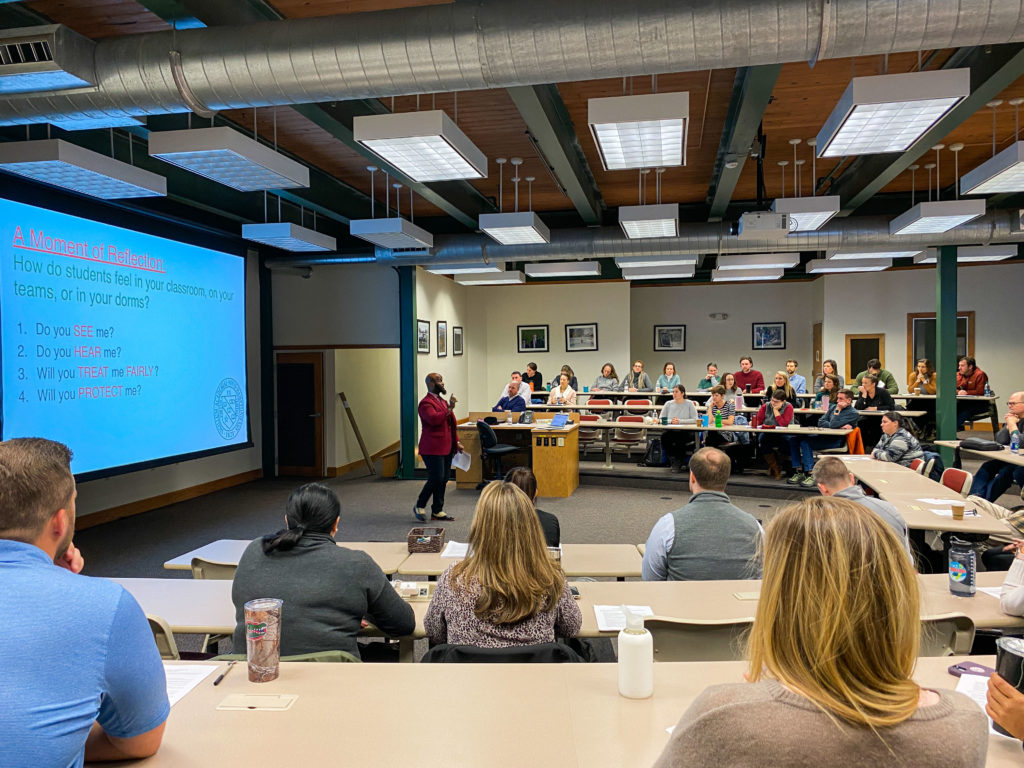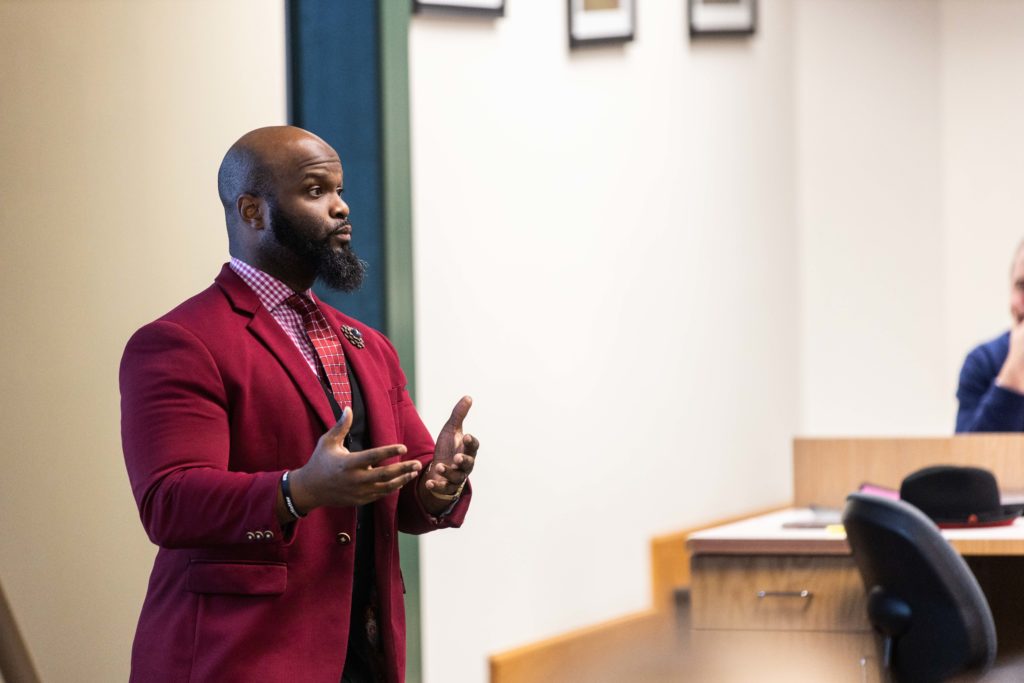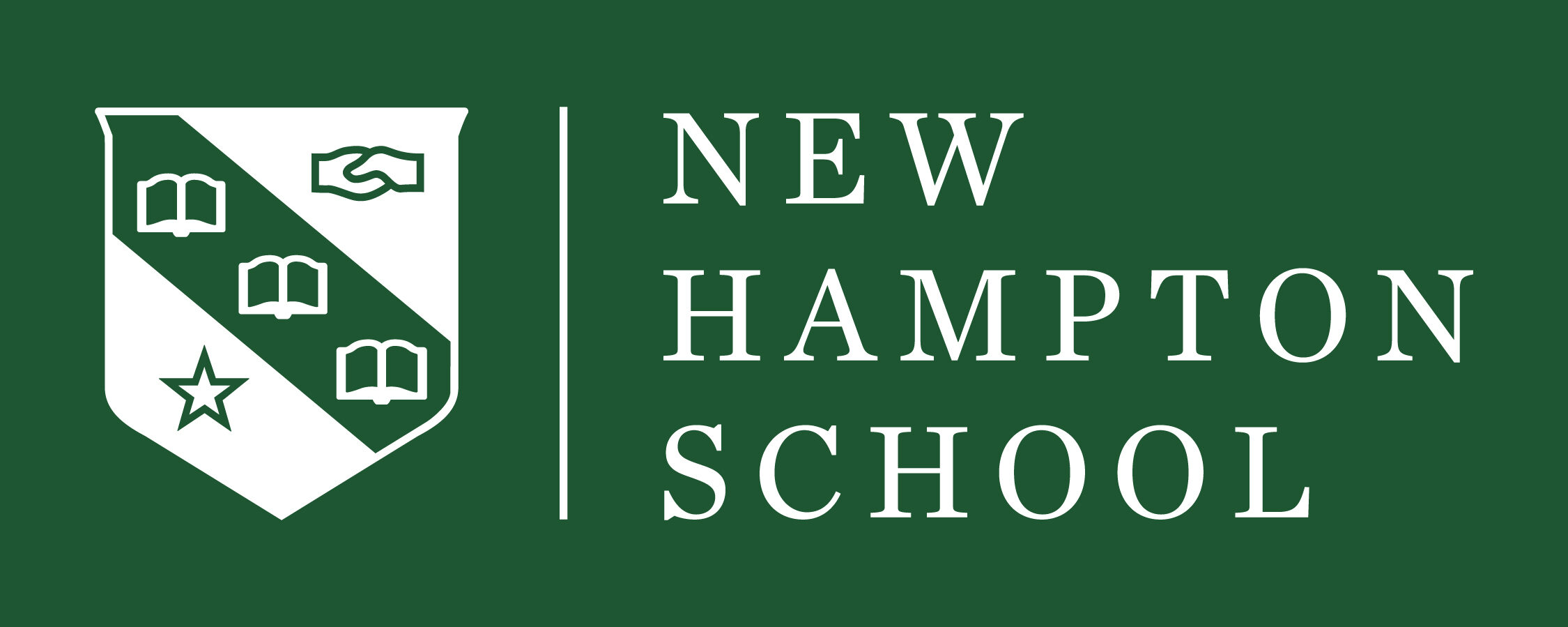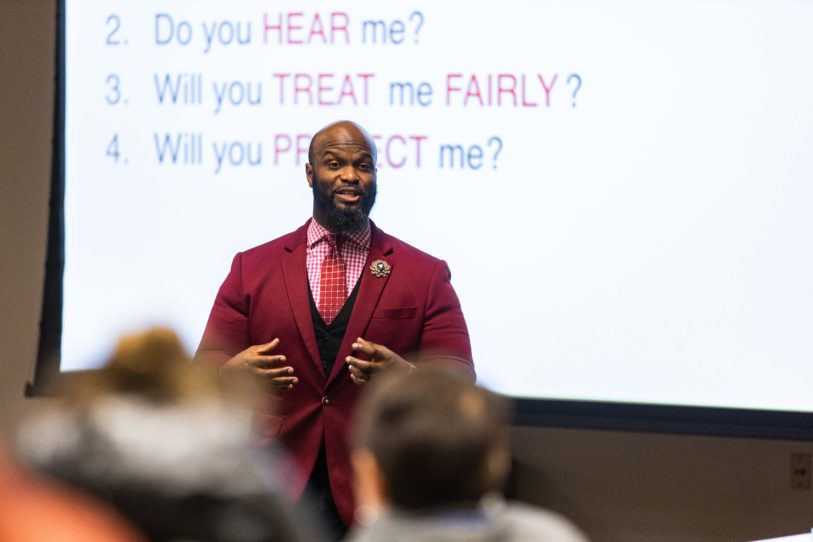Earlier this week, New Hampton School welcomed back Lawrence Alexander for professional development training with our faculty and staff. The goal of our work together includes creating safe spaces where all students are seen, heard, treated fairly, and protected. Whether in the classroom, crossing paths in the hallway, in houses, or on playing fields, being aware of how we acknowledge, respect, and care for others requires mindfulness and attention. Additionally, our curricula must also address diversity, equity, and inclusion. With Alexander’s expertise and resource-rich presentation, we reviewed valuable ideologies before workshopping curricula ideas.
Please note: We hosted this training by video conference this week for social distance and wellness measures. All pictures shared here are from an on-campus visit in January 2020.

Aware and open
While it may seem simple to say that we understand the importance of being aware of our students’ needs, it is a great practice to discuss it as a full faculty body. Through sharing, we identify best practices, unique ideas, and gentle reminders. From simply asking the students how they are feeling to being mindful of world events that may affect their state of mind, creating a safe space goes beyond a friendly demeanor between teacher and student. Faculty must also consider their cultural identity and that of their students, combined with whose voices they are privileging in the classroom and curriculum.
Classroom and curricula designs are key demonstrative elements in each department, regardless of whether classes are studying sciences or humanities. Do your students see themselves represented in the images around your classroom? Do they see themselves in the materials, and the daily discourse? And, do they have a safe way to respond to teachers and classmates? These are just a few of the questions that departments considered during their workshop time. Faculty and staff alike shared strategies to better prepare for the level of awareness and openness needed in our daily interactions.

Taking action
As we all know, to meet together and discuss is one thing, but meetings alone are not indicators of action and progress. Each department was tasked with considering actionable steps forward. Adjustments in the English department include, among other things, a review and sharing of texts that our students have enjoyed, representing diverse images and texts within the class space, and best practices for feedback. In the Math department, Alexander offered a look at the unique applications of geometry through the works of a professor at Tufts University as a consideration for new ways to approach a subject that may not always lend itself to a diverse and inclusive viewpoint.
With goals in mind and a time period to complete them by, our teams will be able to measure success. Our faculty and staff are empowered to spend time meeting and discussing this ongoing work, while also bringing forward new ideas, networks, and resources for the benefit of the greater community. We look forward to our continuing work together and with Lawrence Alexander and other professional development experts this year and beyond.
About Lawrence Alexander
Lawrence Alexander is the Director of Diversity, Equity, and Inclusion at Carney Sandoe & Associates, and consults with schools and organizations around issues of equitable decision making, implicit bias, inclusive hiring, and culturally responsive curricula.




